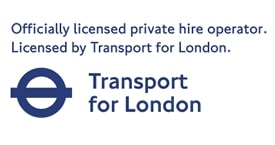Zero emissions London Taxi proposals launched for central London
TfL (Transport for London) has launched a consultation process on proposed changes to taxi and private hire vehicle (PHV) licensing ahead of the ULEZ (Ultra Low Emission Zone), due to be introduced in central London in 2020.
There are two primary proposals. The first is that, from 1 January 2018, all new taxis and PHVs must be zero emission capable (ZEC). The second is to retain the existing 15 year age limit and to encourage retirement of the oldest, most polluting vehicles through a voluntary decommissioning scheme.
The proposals will be supported by a £65 million fund, secured by the Mayor of London, to encourage the take up of new vehicles and the decommissioning of old ones.
ZEC taxis will be based on pure electric or hybrid engine technology capable of running with zero emissions at the tailpipe for all or part of the time (maximum 50g/km CO2 and minimum range of 30 miles).
TfL is working with several manufacturers and says it is confident that ZEC taxis will be available for sale from 2017, well ahead of the deadline.
The agency explains that funding would be made available to enable up to £8,000 in grants for buying ZEC taxis as a £3,000 top-up to the £5,000 OLEV plug-in car grant.
Meanwhile, the mayor is proposing to align the PHV ZEC criteria to match that of the government's plug-in car grant criteria – meaning a greater choice of vehicles, including the Toyota Prius and Mercedes-Benz S-class.
Specifications for ZEC taxis and PHVs will be confirmed once the final licensing requirements have been agreed.
Meanwhile, if the proposals pass scrutiny, from 2017, drivers of taxis more than 10 years old would be able to claim up to £5,000, depending on the age of their vehicle.
"We believe the £65 million fund will encourage the uptake of cleaner, greener taxis well ahead of the 2020 deadline," comments Garrett Emmerson, TfL's chief operating officer for surface transport.
With the new proposals, the overall ULEZ package is projected to nearly halve emissions of NOx from vehicle exhausts in central London. This means more than 80% of central London is expected to meet the NO2 annual legal limits in 2020.
Source: Transport Engineer




